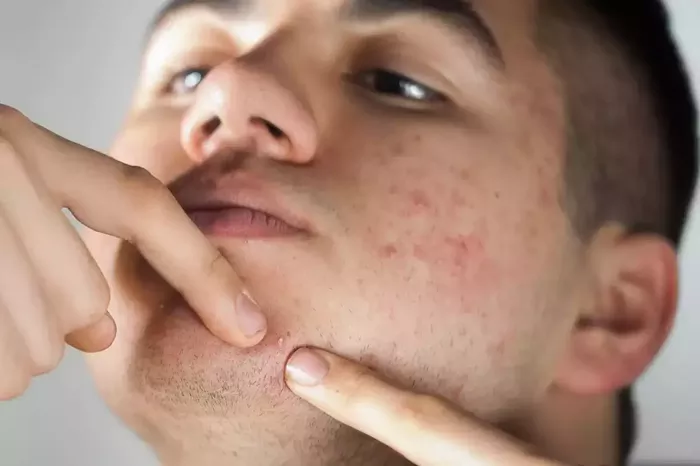Acne is a common skin condition that affects millions of people worldwide. It can manifest in various forms, including pimples, blackheads, and cysts. While it is often associated with adolescence, many adults continue to experience acne into their thirties and beyond. This article aims to provide a comprehensive overview of the best skincare practices and products for managing pimples effectively.
What Causes Pimples?
Understanding the root causes of pimples is crucial for effective treatment. Several factors contribute to acne development:
Hormonal Changes: Fluctuations in hormones, especially during puberty, menstruation, or pregnancy, can lead to increased oil production in the skin.
Excess Oil Production: The sebaceous glands can become overactive, producing more oil than necessary, which clogs pores.
Bacteria: The presence of Propionibacterium acnes, a bacteria that thrives in clogged pores, can exacerbate acne.
Dead Skin Cells: When dead skin cells accumulate on the skin’s surface, they can mix with oil and block hair follicles.
Diet and Lifestyle: Certain foods and stress can also trigger or worsen acne.
The Importance of a Consistent Skincare Routine
A consistent skincare routine tailored for acne-prone skin is essential for preventing and treating pimples. Here’s a breakdown of an effective routine:
1. Morning Routine
Gentle Cleanser:
Start with a gentle cleanser to remove overnight oils and impurities. Look for products that are non-comedogenic (won’t clog pores).
Recommended Products: Cetaphil Gentle Skin Cleanser or CeraVe Hydrating Facial Cleanser.
Toner:
Use a toner to help balance the skin’s pH and remove any residual impurities.
Recommended Products: Murad Clarifying Toner or Skinsmiths Active Clarifying Toner.
Treatment Products:
Apply targeted treatments containing active ingredients like salicylic acid or benzoyl peroxide.
Salicylic Acid: A beta-hydroxy acid that helps unclog pores.
Benzoyl Peroxide: Kills acne-causing bacteria and reduces inflammation.
Recommended Products: Paula’s Choice 2% BHA Liquid Exfoliant or Oxy 10% Benzoyl Peroxide Acne Treatment Gel.
Moisturizer:
Despite having oily skin, moisturizing is crucial to maintain hydration without adding excess oil.
Recommended Products: Neutrogena Hydro Boost Gel Cream or CeraVe Moisturizing Cream.
Sunscreen:
Protecting your skin from UV damage is vital, especially when using acne treatments that can increase sensitivity.
Recommended Products: La Roche-Posay Anthelios 60 Ultra-Light Sunscreen Fluid.
2. Evening Routine
Double Cleansing:
If wearing makeup, start with an oil-based cleanser followed by a gentle foaming cleanser to remove all traces of makeup and impurities.
Toner:
Repeat the use of toner as in the morning routine.
Treatment Products:
Apply retinoids at night to promote cell turnover and prevent clogged pores.
Recommended Products: Adapalene (Differin) or prescription tretinoin if necessary.
Moisturizer:
Use a lightweight moisturizer to keep skin hydrated overnight without clogging pores.
Key Ingredients to Look For
When selecting products for pimple-prone skin, certain ingredients are particularly effective:
Salicylic Acid: Penetrates pores to dissolve debris and oil.
Benzoyl Peroxide: Reduces bacteria and inflammation.
Retinoids (Adapalene): Promote cell turnover and prevent clogged pores.
Niacinamide: Helps reduce inflammation and redness while improving skin barrier function.
Azelaic Acid: Effective for reducing redness and killing bacteria; also helps with hyperpigmentation.
Professional Treatments for Acne
In addition to an at-home skincare routine, professional treatments can significantly improve acne conditions:
Chemical Peels: These treatments use acids to exfoliate the skin deeply, removing dead skin cells and unclogging pores.
Laser Therapy: Laser treatments can reduce inflammation and kill bacteria under the skin’s surface.
LED Light Therapy: Blue light therapy targets acne-causing bacteria while red light reduces inflammation.
Microdermabrasion: This treatment exfoliates the outer layer of skin, promoting new cell growth.
Lifestyle Modifications
In addition to skincare products and treatments, certain lifestyle changes can help manage acne:
Dietary Adjustments: Reducing sugar intake and consuming more whole foods may benefit skin health.
Hydration: Drinking plenty of water helps maintain skin hydration.
Stress Management: Practicing relaxation techniques such as yoga or meditation can help reduce stress-related breakouts.
Regular Exercise: Exercise improves circulation and helps manage stress levels.
Conclusion
Managing pimples effectively requires a multifaceted approach that includes a consistent skincare routine, the right products with active ingredients, professional treatments when necessary, and lifestyle modifications. By understanding your skin type and its specific needs, you can develop a personalized strategy to achieve clearer skin.
By following these guidelines and being patient with your skincare journey, you will be well on your way to managing pimples effectively and achieving healthier-looking skin.
Related topic:
When in Skincare Routine to Use Retinol?
What Are the Best Natural Skin Care Products?
What Is the Best Affordable Skin Care Line?


